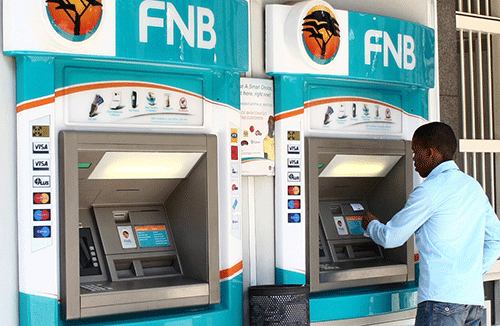The escalation of fraud cases in Namibia’s banking sector has resulted in anxiety among members of the public, who fear for unauthorised transactions on their accounts.
The prevalence in fraudulent activities in some commercial banks has, of late, left many customers feeling vulnerable, with numerous reports of individuals losing substantial amounts of money across various commercial banks in the country.
In response to the growing menace of financial fraud, stakeholders in the domestic banking sector are considering the establishment of a central fraud prevention body. This initiative is to create a collaborative framework similar to the South African Banking Risk Information Centre (SABRIC), which has proved to be quite effective in combating organised crime and fraud in that country’s banking sector.
This opinion was shared by Johan du Plessis, chief risk officer at FirstRand Namibia, at a media conference organised by First National Bank of Namibia (FNB) Namibia last week. Du Plessis emphasised the need for collaboration among banks and regulators to tackle the escalating crime.
At the briefing, FNB reported a rise in fraud, revealing that during November and December 2024, the bank investigated 103 fraud cases. This figure represents less than 1% of its customer base, but the financial impact has been substantial, with losses exceeding N$4 million. The bank only recovered under N$1 million for affected clients.
Du Plessis detailed one particularly distressing case involving a 60-year-old pensioner from the Omusati region, who recently lost N$1.1 million to fraudsters. The fraudsters accessed her account, and transferred funds to multiple accounts within FNB.
Du Plessis stated this incident was not linked to any internal bank personnel, underscoring the sophisticated tactics employed by criminals.
“Crime, and in this instance, fraud, is not just a banking concern; it is a national and industry-wide problem that requires a collaborative approach to address effectively. We are actively working to further combat this growing threat. Our role in this is to protect our customers, and support the wider effort to address these crimes,” said Nangula Kauluma, CEO of FNB Namibia Retail. At the same event, Rodney Forbes, chief operating officer at FNB Namibia, noted that at FNB, security is non-negotiable.
“We have robust security measures, such as Two-Factor Authentication (2FA) and encryption for secure data transmission. We also have a dedicated forensic team that works alongside law-enforcement agencies to investigate fraud cases, and assist in seeing criminal prosecutions through to successful convictions. We urge our customers to use strong, unique passwords, avoid unsolicited communications, and be vigilant about the threats that are constantly evolving,” said Forbes.
Furthermore, Standard Bank Namibia confirmed that several of its clients were victims of account hacking, resulting in unauthorised debit card transactions.
However, despite these efforts, customers like Petronella Wilson have incurred significant losses, with little assurance of recovery. Wilson reported losing more than N$8 000 when her bank account was allegedly hacked, expressing frustration with the lengthy investigation process.


